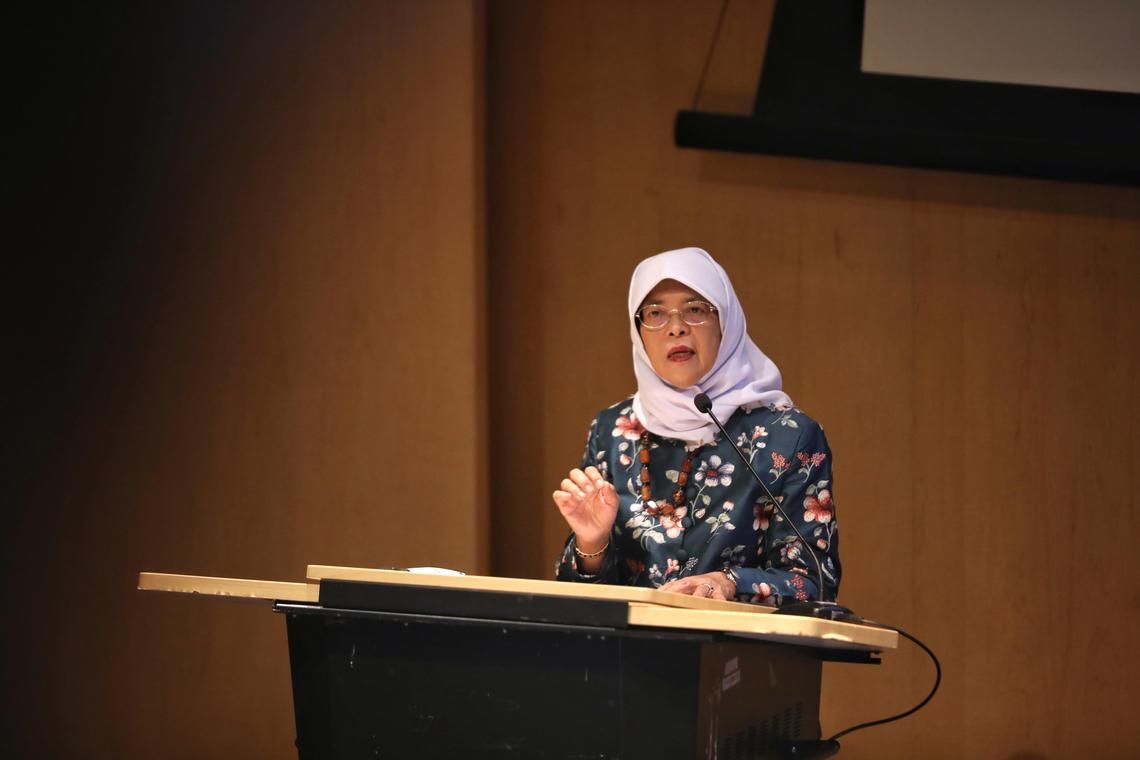SINGAPORE – The number of seniors is increasing in Singapore, but many still have not made plans for when they die, said former president Halimah Yacob, urging them to initiate such discussions.
It is important to do so to make the process easier for loved ones and grieving children when the time comes, she said on May 17.
Recognising that legacy planning is a sensitive topic, Madam Halimah said that the younger generation may not have the courage to broach the topic of death.
“Conveying our last wishes, or communicating to our loved ones our preferences regarding funeral rites and religious traditions, is critical so that they have clarity,” she said, speaking at a symposium on legacy planning by the Silver Caregivers Cooperative.
It will make things easier for our loved ones when they know our wishes, so they are spared from confusion and everyone has peace of mind, she added.
Madam Halimah said that like many, she has thought about legacy planning for a long time, but has not taken the first step to start.
“I’m 71 years old now, so I think I should do something about it,” said the mother of five.
Legacy planning includes estate and asset distribution plans, drafting a will, making a Lasting Power of Attorney (LPA) to ensure a trusted person can take charge if one loses mental capacity, and discussing advance care plans to settle preferences for medical care.
Digital assets – like financial accounts, e-mail, social media, online business accounts and tech devices – are increasingly being discussed in wills and end-of-life documentation.
Some law firms have seen a significant increase in queries from people asking about cryptocurrencies or other types of digital assets like non-fungible tokens.
The symposium, held at the Lifelong Learning Institute in Paya Lebar, was attended by around 120 people who signed up to learn more about legacy planning.
Associate Professor Thang Leng Leng from the National University of Singapore, who spoke during a presentation at the event, said that beyond asset distribution, legacy planning also includes values, wishes and preferences.
This includes how you want to be taken care of if you need long-term care, funeral arrangements, and passing down family values and traditions.
Prof Thang said that one thing she regrets is not asking for family recipes from her grandfather, who cooked Hakka dishes. “I am no longer able to taste that special food from my grandfather,” she said.
Another speaker, Dr Adeline Lam, a senior consultant at Tan Tock Seng Hospital, spoke about the importance of establishing advance care plans.
Advance care planning allows people to discuss their medical treatment preferences in advance, and enables them to designate someone to decide on medical care for them if they become mentally incapacitated.
This helps to circumvent conflict when differences of opinion arise between family members regarding medical treatment for a loved one, she said.
“Having conversations and letting your family know your wishes so that they know what to do is important, so the burden of guilt is not there. They know that ‘This is what mum wants’, for example,” she said.
Lawyer Norhakim Md Shah urged the audience to make an LPA. He said the process to be appointed as a deputy under the Mental Capacity Act takes a long time. This process is initiated when a person loses mental capacity and does not have an LPA for a trusted person to make decisions on their behalf.
“Doing an LPA cuts short a problem you can foresee. Nobody lives forever, and there are things we can do to help the people around us so that they do not get themselves in a complicated situation just because we have chosen not to do anything to prepare.”
The LPA application fee, which is usually $75, is waived for Singapore citizens until the end of March 2026.
Join ST’s WhatsApp Channel and get the latest news and must-reads.

